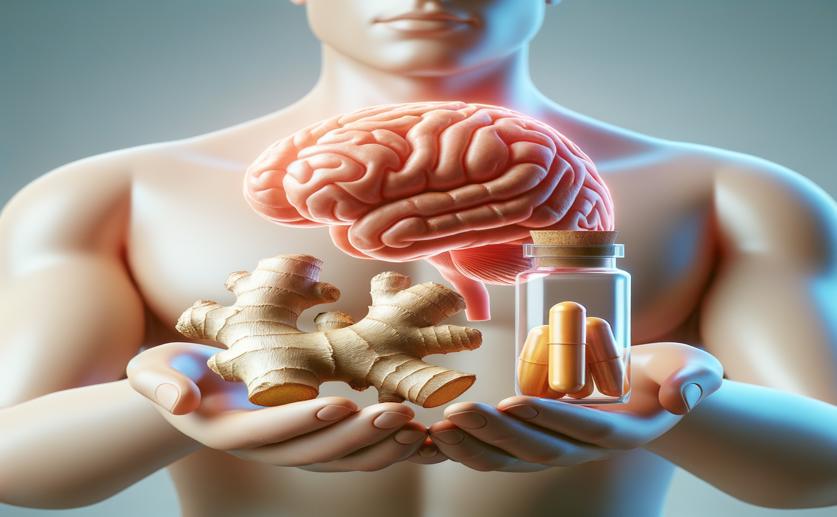
Ginger Supplementation Reverses Brain Damage and Memory Loss from High-Fat Diets
Jenn Hoskins
10th August, 2024

Image Source: Natural Science News, 2024
Key Findings
- The study from Universidade do Extremo Sul Catarinense (UNESC) explored the effects of ginger supplementation on obese mice
- Obese mice showed impaired memory, but ginger supplementation reversed this cognitive decline
- Ginger also reduced anxiety levels and improved antioxidant status in the brains of obese mice
References
Main Study
1) Reversal of high-fat diet-induced cognitive impairment and oxidative stress in the brain through Zingiber officinale supplementation.
Published 9th August, 2024
https://doi.org/10.1007/s11011-024-01406-8
Related Studies
2) The impact of obesity and hypercaloric diet consumption on anxiety and emotional behavior across the lifespan.
3) Pharmacotherapeutic potential of ginger and its compounds in age-related neurological disorders.
4) Higher normal fasting plasma glucose is associated with hippocampal atrophy: The PATH Study.



 3rd June, 2024 | Jenn Hoskins
3rd June, 2024 | Jenn Hoskins